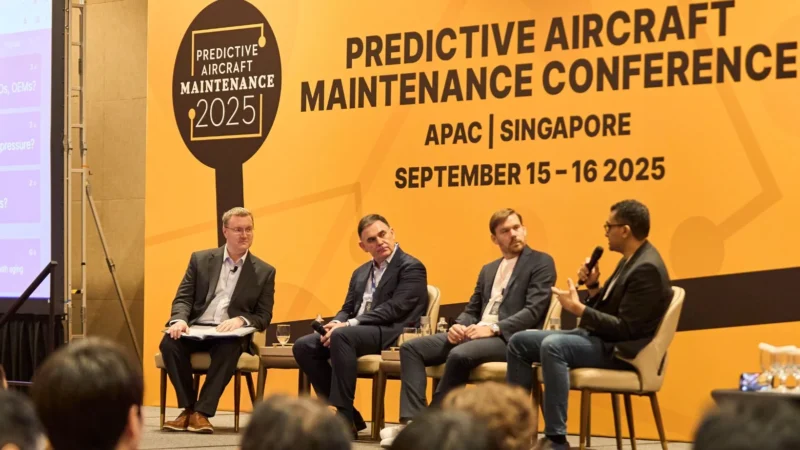An overly risk averse approach to the supply of USM in the sector is pushing the price of parts up, the first APAC edition of the Predictive Aircraft Maintenance (PAM) Conference in Singapore heard.
Speaking on a panel alongside lead sponsor EirTrade Aviation, the Irish teardown and parts supply specialist, Job Arnold founder of online marketplace STRADE said there is a “wealth of USM”.
But he said the industry is failing to unlock the potential of that inventory because it is taking a risk averse attitude amid ongoing supply chain challenges.
Arnold said: “We should not be relying on aircraft being torn down for parts – we can unlock the value of what’s available today.
“One of the most difficult things is to actually put a price on a part, which is insane. There is nothing fair about the fair market value because no one is being transparent about it.
“No one is saying that’s the price you should be paying.” Arnold added that a more democratised marketplace would address buyer frustration and put and end to prices being driven up.
Mahmoud El Sawah, founder and chief executive of AirNxt, agreed saying that there needs to be a more transparent marketplace, akin to Amazon in consumer online retailing.
“The issues is what parts do we have and how can we sell them. That’s what we are trying to solve. No one knows where to buy parts, so they all go to brokers.
“Companies doing the teardown need to have an itemised software system that helps them in inventory management control.”
Tony Ramage, EirTrade Aviation director of origination and trading for APAC, said prices for end-of-life aircraft, due to high demand for parts, are at a level which is hard to justify.
He said airlines are paying a premium for parts because “you just do not know when you are going to receive it”.
Ramage said he does not see supply chain issues easing any time soon and this is forcing carriers to adapt their strategies.
A “natural conservatism” in the sector to always buy the new “shiny stuff” is being replaced by a need to consider USM due to market forces. “USM will grow in importance,” he said, “but it will take time because of that conservatism.”
Arnold added that USM has a negative reputation in the industry due to issue relating to rogue and ghost parts and there is a need for more trust.
A shift to parts pooling will inevitably see more USM being used by airlines and digital traceability will help to build that trust, added Arnold.
READ MORE NEWS: Hong Kong’s Aviation Services Research Centre forecasts ‘predictive revolution’
